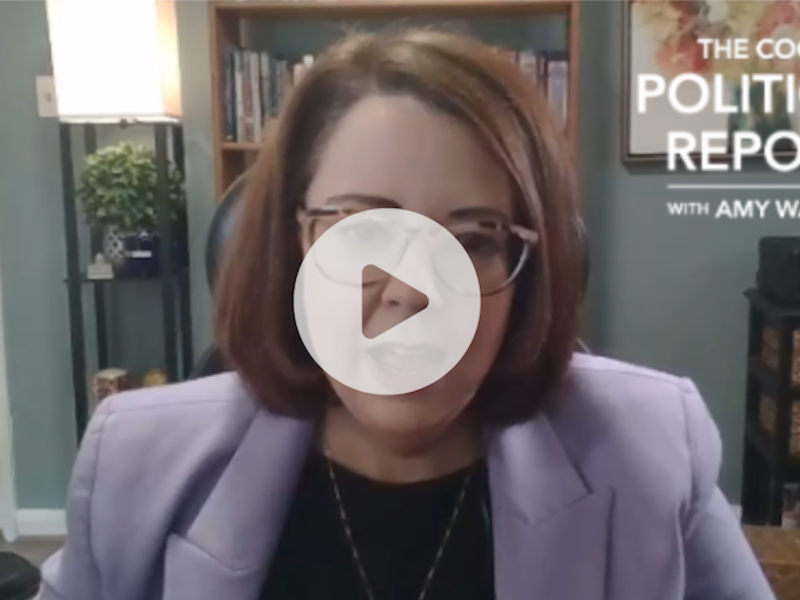
It’s hard to determine where to start a political discussion these days. Impeachment? The Democratic presidential-nomination contest? President Trump’s prospects for reelection?
The calendar can help guide us, as can a slew of new and highly regarded polls, which touch on all three of those storylines. Sunday marked the point when the 2020 election was exactly a year away. Iowans will head to their caucuses in three months and Super Tuesday, with about a dozen states holding primaries, occurs precisely one month later.
When looking at public opinion on impeachment, it is best to focus on the question of whether a respondent is in favor of impeaching and removing Trump from office or opposed to impeaching and removing. More-nuanced questions, like whether a respondent supports the impeachment inquiry, simply confuse the issue.
Fox News, ABC News/Washington Post, and NBC News/Wall Street Journal all released polls this weekend with the same survey dates, Oct. 27-30. Interestingly, all three polls had support for impeaching and removing Trump at precisely the same number, 49 percent. Fox had opposition to impeachment and removal at 45 percent, NBC/WSJ at 46 percent, and ABC/Post at 47 percent. Whichever way you slice it, the country is very narrowly divided on the impeachment issue.
It is interesting to look at the drop-off between those who disapprove of Trump’s job in office on the one hand, but do not support impeaching and removing on the other. These are people who are clearly not Trump fans but disapprove of this course of action. In the NBC News/WSJ poll, impeachment and removal ran 4 points below disapproval, Fox had the gap at 8 points, and ABC/Post showed a 9-point margin.
As one might expect, there is a Grand Canyon separating the views of Democrats and Republicans on impeaching and replacing. The ABC/Post poll showed 82 percent of Democrats in support; Fox showed 86 percent; and NBC/WSJ indicated 88 percent. Among Republicans, 82 percent in the ABC/Post poll opposed impeachment, compared to 91 percent in the Fox poll and 89 percent in NBC/WSJ. Independents are very narrowly divided but with slightly more opposed to removal than supporting it by anywhere from 2 to 9 points depending on the poll.
The question is whether there is the potential for a Kavanaugh Effect to take hold—an event that simply makes blues bluer and reds redder. The key difference is that all of this will be playing out nine to 12 months ahead of the election, whereas the Kavanaugh episode took place only about 10 weeks before the midterm balloting. Some speculate that this could create headwinds for Senate Republicans already facing difficult races in competitive states, like Susan Collins in Maine, Cory Gardner in Colorado, and Martha McSally in Arizona, but also for some of the 31 House Democrats who will be running in districts carried by Trump in 2016.
In terms of the Democratic nomination, Joe Biden held narrow leads over Elizabeth Warren in all three polls—4 points in the NBC/WSJ poll (27 to 23 percent), 5 points in ABC/Post (28 to 23 percent), and 10 points in the Fox poll (31 to 21 percent). All three showed Bernie Sanders in third place, trailing Warren by no more than 5 points in any of the surveys. Pete Buttigieg came in fourth place in all three, but with anywhere between 8 and 13 points of daylight between the Vermont independent senator and the South Bend, Indiana mayor. Aside from Kamala Harris hitting 4 percent in the NBC/WSJ poll, everyone else was at 3 percent or less in all three polls.
Warren is clearly leading the field in both Iowa and New Hampshire, where her very effective and personal style of campaigning has the most effect, and there are few minority voters. The RealClearPolitics average of recent polls in Iowa show Warren with 22 percent, ahead of what is essentially a three-way tie for second place, with Buttigieg at 17 percent, Biden at 16 percent, and Sanders at 15 percent.
Good news for Warren is that there is no way Sanders can consolidate the progressive wing of the party. Ultimately she will have the Left to herself. The bad news is that Bernie isn’t going anywhere. He is not likely to get out of this race quickly or quietly, nor will his supporters, who tend to be either very loyal or quite stubborn, depending upon your perspective.
Those who assume that Warren will eventually pick up virtually all of the Sanders vote will likely be right. The question is will it be in April, May, June, or July? For guidance, in 2016, Sanders didn't withdraw until after the final primary (the District of Columbia on June 14), and he didn’t endorse Hillary Clinton until July 12. Warren is also finally taking flak over her ambitious agenda, both on policy grounds as well as how it underscores electability questions. Her effective campaign style and superior organization may allow her to power through this phase, but the locomotive is not gaining quite as much steam as the conventional wisdom would have you believe.
Speaking of momentum, Buttigieg remains the only non-septuagenarian candidate within striking distance of the leaders. That, along with his recent surge in Iowa, may make him the most interesting story over the next few weeks.
This story was originally published on nationaljournal.com on November 5, 2019










Subscribe Today
Our subscribers have first access to individual race pages for each House, Senate and Governors race, which will include race ratings (each race is rated on a seven-point scale) and a narrative analysis pertaining to that race.